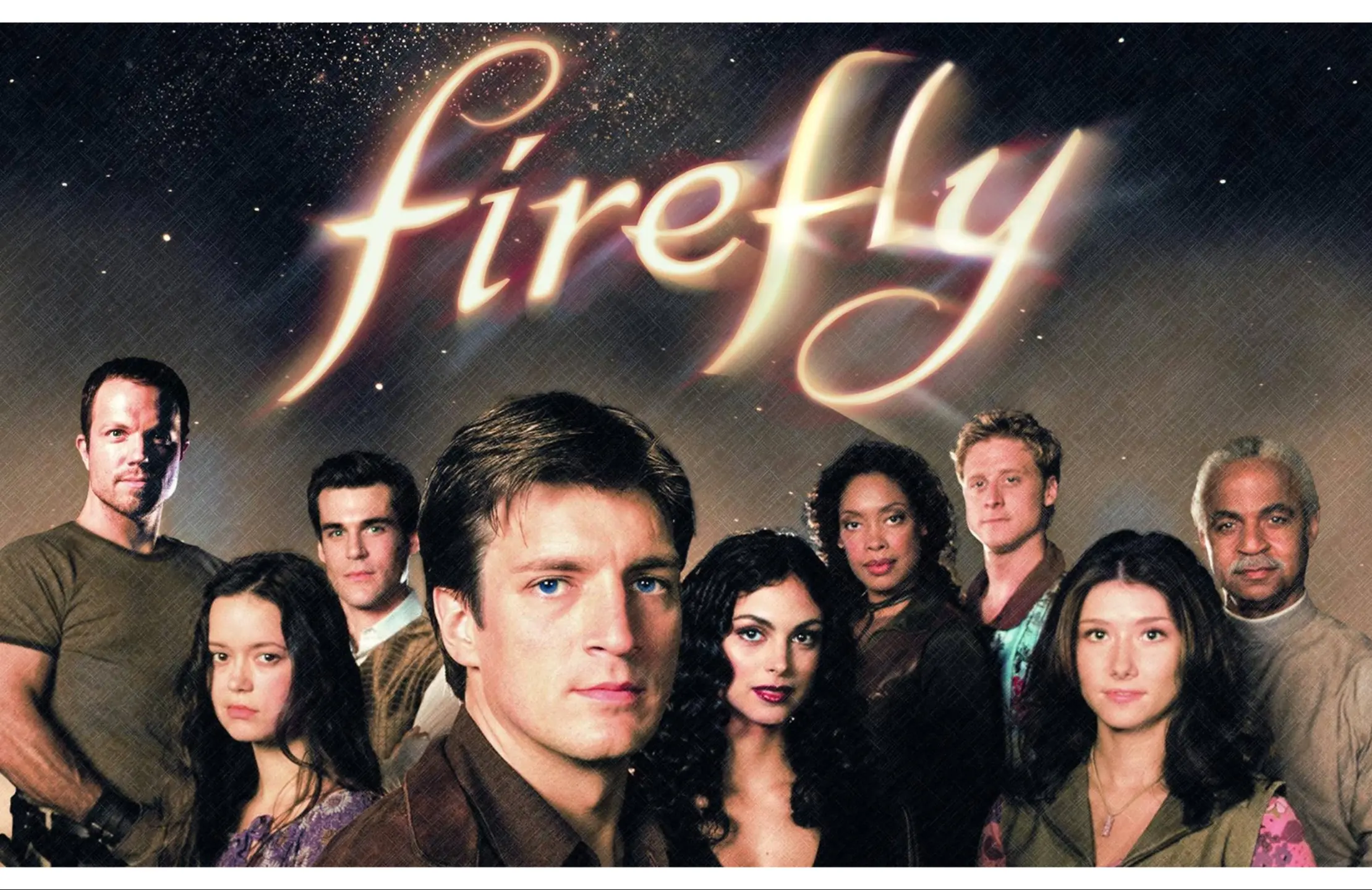Why Firefly TV show was canceled prematurely? Here's what to know
-
 Image courtesy @Amazon Prime Video
Image courtesy @Amazon Prime VideoFirefly, the science fiction TV show created by Joss Whedon, has been talked about for years by fans and people in the industry. Even though it received good reviews and had a loyal audience, the show was canceled by Fox after just one season. This sudden decision left many wondering what might have happened if it had continued. In this article, we’ll look at the reasons behind Firefly’s early cancellation and give a neutral look at the show's history and impact.
The cancellation was disappointing for viewers who enjoyed the show’s mix of sci-fi and Western themes. The story followed the crew of the spaceship Serenity as they traveled through a colonized solar system, facing different challenges and experiences. The series had a strong cast, including Nathan Fillion, and was guided by Whedon’s creative direction. It seemed to have everything needed for long-term success, but it ended much earlier than expected.
When and Why Firefly aired
Firefly is the best single season of television ever made. Watch it and lament what we have lost. Not just because Joss Whedon is gone, but we are beset by the army of inferior copies, including James Gunn and Taika Waititi, pale imitations of the master of storytelling.
— Istaphobos (@IstaPhobos) July 18, 2025One major reason for Firefly's early cancellation was its time slot. Fox chose to air the show on Fridays at 8 p.m. This time has often been called a “death sentence” for many shows. Actor Adam Baldwin, who played Jayne Cobb, said this made it hard for Firefly to build a steady audience. Many viewers were not watching TV at that time, which affected the show's performance.
Other shows competing for viewers
Firefly also had to compete with other shows airing at the same time. Friday nights featured programs like America's Funniest Home Videos on ABC, 48 Hours on CBS, and various sitcoms on The WB. These shows were not the same genre as Firefly, but they still pulled in viewers. This made it harder for Firefly to stand out.
In 2002, American Idol also began airing. It quickly became very popular and drew a huge number of viewers. Its rise made the competition for ratings even tougher. This shift in viewer attention impacted many shows airing during the same period.
Changes suggested by the Network
Creative control was another challenge. As with many shows, Firefly received input from the network. Fox gave suggestions on certain parts of the story. Reports suggest that there were disagreements about character relationships. The network wanted room for possible romantic storylines.
Joss Whedon, the show's creator, disagreed with this idea. He did not want to change the direction of the story. However, he did agree to make some parts of the show less dark, as requested by Fox. These changes may have influenced how the show felt overall.
How the show was promoted
FIREFLY IS THE GREATEST TV SHOW OF ALL TIME
— mal ✱ SAW SUPERMAN (@snoopysaunders) July 16, 2025
stills by the lovely @janefairfax_ pic.twitter.com/jkhqAM6I8XHow Firefly was marketed also had an effect. The promos focused on the funnier parts of the show. They showed it as more of a comedy than it really was. This may have confused new viewers about the kind of show they were watching.
Fox also aired the episodes out of order. This made it harder for the audience to follow the story. Key parts of character development and world-building were missed. As a result, many viewers struggled to fully connect with the plot.
The cancellation of Firefly was the result of several contributing factors, including a challenging time slot, competitive programming, network involvement in creative decisions, and limited marketing efforts. These elements combined to affect the show’s performance during its original run.
Following its cancellation, Firefly gained attention through DVD sales and the release of the 2005 feature film Serenity. Over time, interest in the series continued, with cast and crew participating in fan conventions and related events.
Discussions about a possible revival have continued in various media outlets, but no official plans have been confirmed. The series remains part of conversations around television shows that ended before completing their intended run.
TOPICS: Firefly